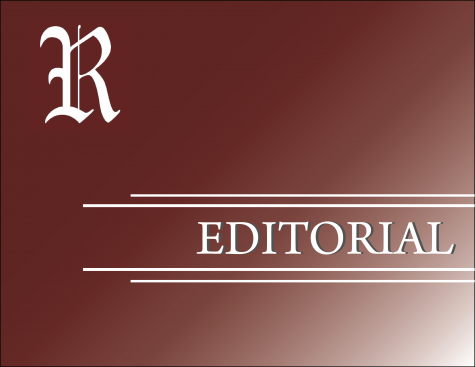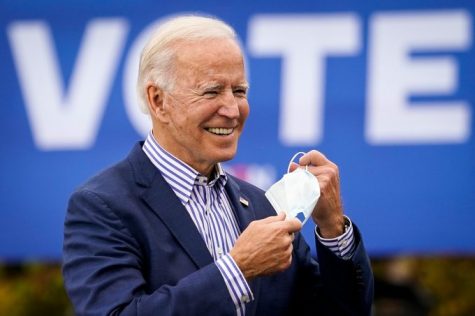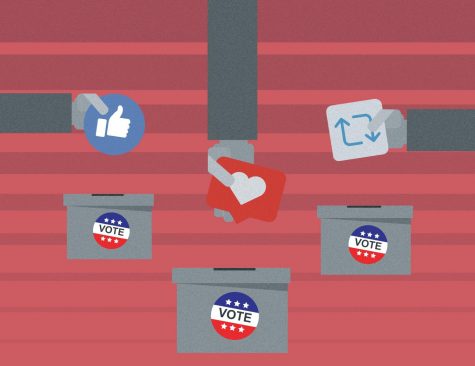Un’s Missile-less Parade is Still Suspicious
Having no intercontinental ballistic missiles in North Korea’s parade is a start, but does not complete denuclearization (Courtesy of Flickr).
September 19, 2018
By Jana Tehfe

On Sept. 9, soldiers, artillery vehicles and floats proceeded through the main plaza in Pyongyang, North Korea for the annual parade, celebrating 70 years of rule by the Kim Dynasty. Markedly absent was the regime’s collection of long-range missiles or any comments by the country’s leader Kim Jong-Un.
Typically, the Hermit Kingdom likes to show off its deadliest weapons, so the absence of intercontinental ballistic missiles (ICBM) and lack of explicit anti-American slogans raised a few eyebrows. It did seem to be an encouraging sign for Washington, which has been urging Kim Jong-Un to ease tensions and focus on diplomacy.
In June, President Donald Trump claimed North Korea was “no longer a nuclear threat” following a historic summit with the nation’s leader.
On Sunday, President Trump turned to Twitter to thank Kim Jong-Un. He wrote, “This is a big and very positive statement from North Korea. Thank you to Chairman Kim.”
While Washington may see this as a positive sign, many US citizens are still suspicious of the North Korean leader’s true motives. Many have the same opinion as I do, believing that, if anything, the lack of missiles should be a sign for the United States to take further action, not fall into blind trust.
Some analysts suspect that the country chose not to show off its long-range missiles because Pyongyang believes its program is complete, and no longer has the need to flaunt its weapons.
CNN reporter Will Ripley talked to two North Koreans who participated in the parade, who claimed that their country did not need to display their missiles because it had already achieved its nuclear goals.
Ripley also posted on Twitter claiming, “When I asked one man if he thinks North Korea should denuclearize, he quickly replied, ‘Never!’”
This alone should be a major red flag for the United States. North Korea’s own citizens are admitting to the country’s reluctance to denuclearize. The parade had served as propaganda in the past, so it is not a far-fetched assumption to state that the parade was used as a feint to ease the minds of the United States. In fact, there is nothing that solicits the end of nuclear weapons or peace between North Korea and the United States.
Previously, ICBMs were shown off at every holiday and event that allowed North Korea to do so. This tactic was meant to show the rest of the world that North Korea was to be feared, even if it was all just for display. This was more of a “man behind the curtain” strategy.
However, if the claims made by the people of North Korea that they have already reached their nuclear goal are true, North Korea no longer has the need to prove themselves.
If anything, North Korea would alter their approach, to deflect suspicion and have the element of surprise on their side, which seemed like the reason for the lack of ICBMs at the parade.
Additionally, Kim Jong-Un’s silence throughout the parade is a reason to question the dictator further. There have been many instances in the past where Kim Jong-Un claimed he would take the steps to denuclearize North Korea while his actions proved otherwise.
As Reuters reported, Trump told reporters back in June that Kim Jong Un has pledged to dismantle one of his missile installations, the Sohae Satellite Launching Ground. Kim Jong-Un has not taken any steps to doing so since the announcements.
North Korea fired 23 missiles during 16 tests between February and December of 2017. On July 4, North Korea conducted its first test of ICBM’s, which they claim could reach “anywhere in the world.”
It would be rather ill-advised to believe that North Korea would give all their missiles up after so many years of refusing to do.
The United States should take extra precaution when dealing with North Korea. We should not forget past events when looking toward our future with a rather inconsistent nation.
Jana Tehfe, FCRH ’21, is a political science major from Brooklyn, New York.












If you want a picture to show with your comment, go get a gravatar.